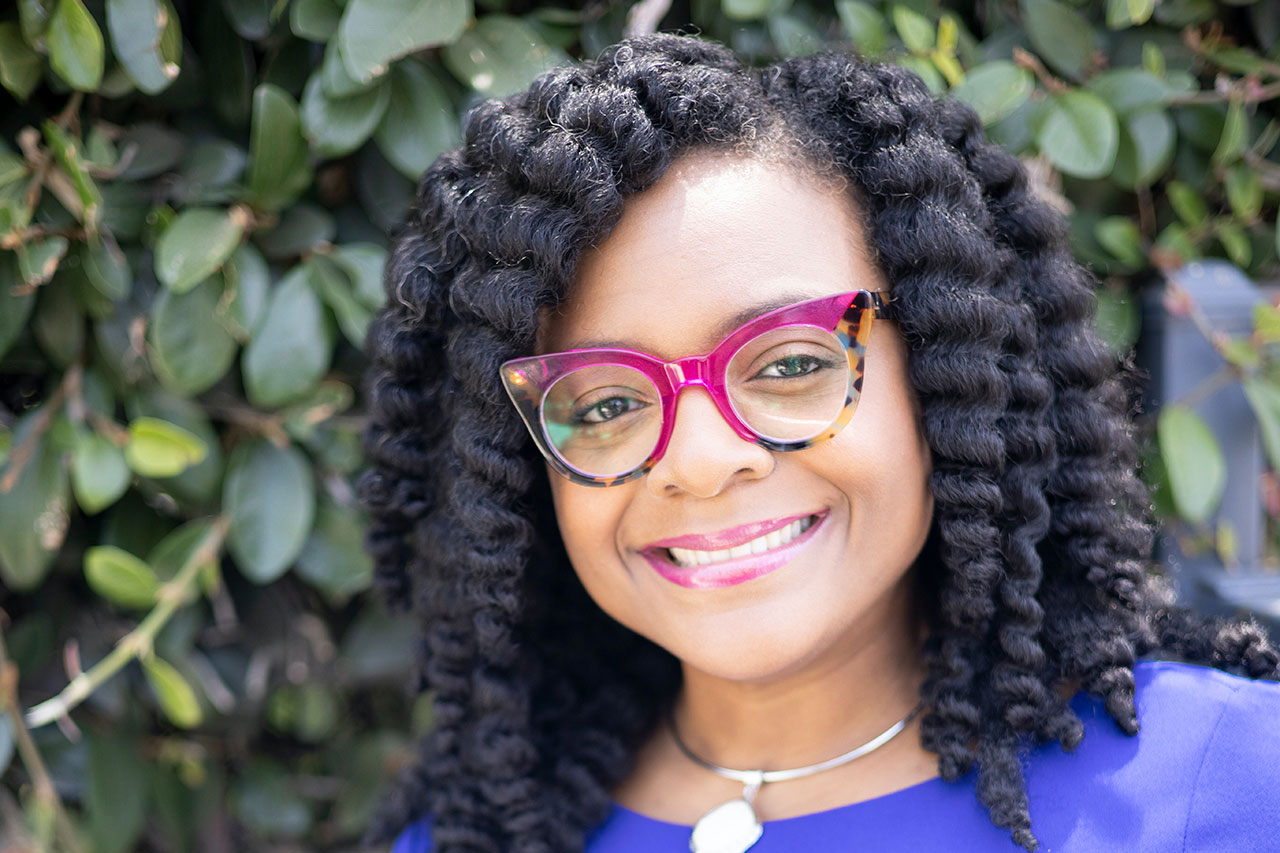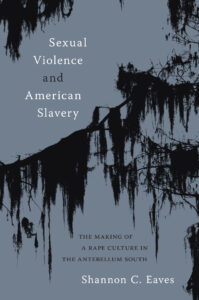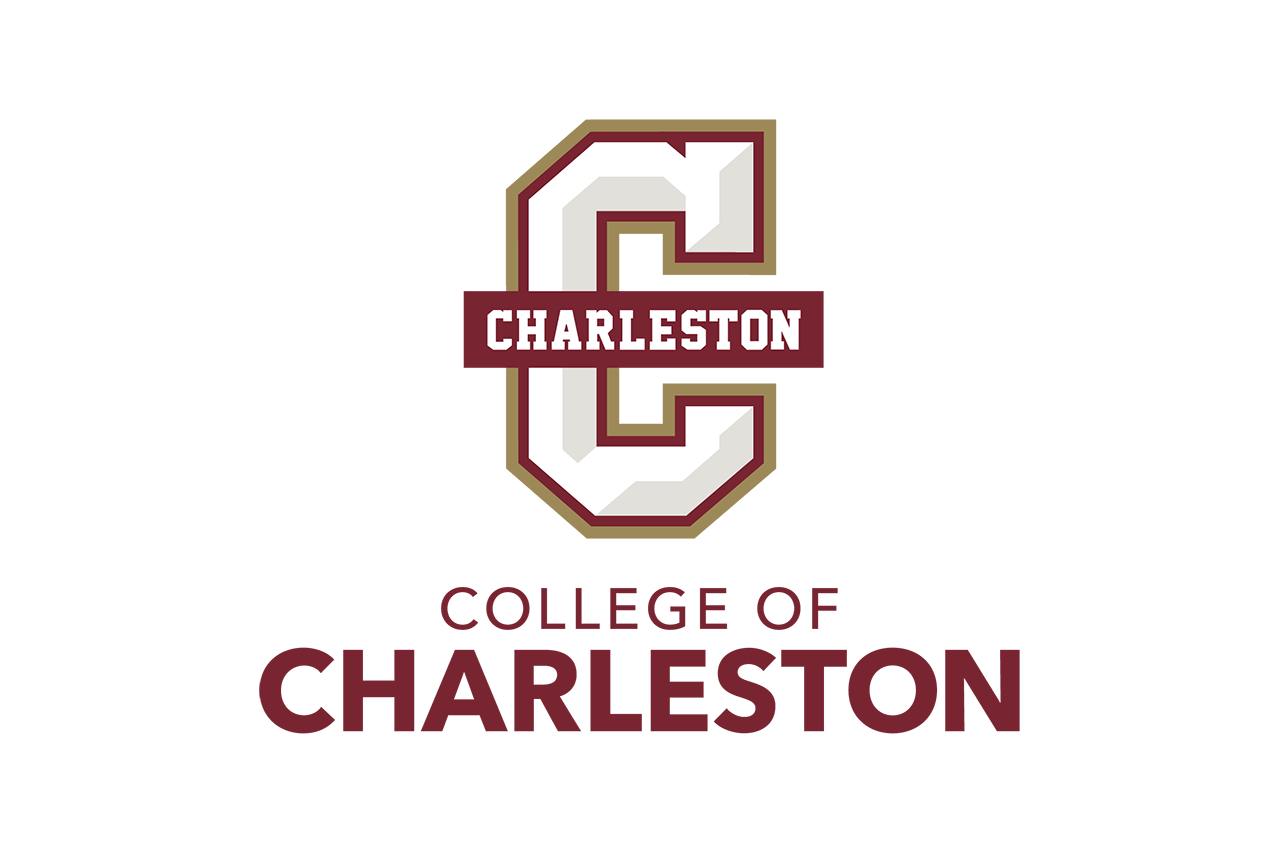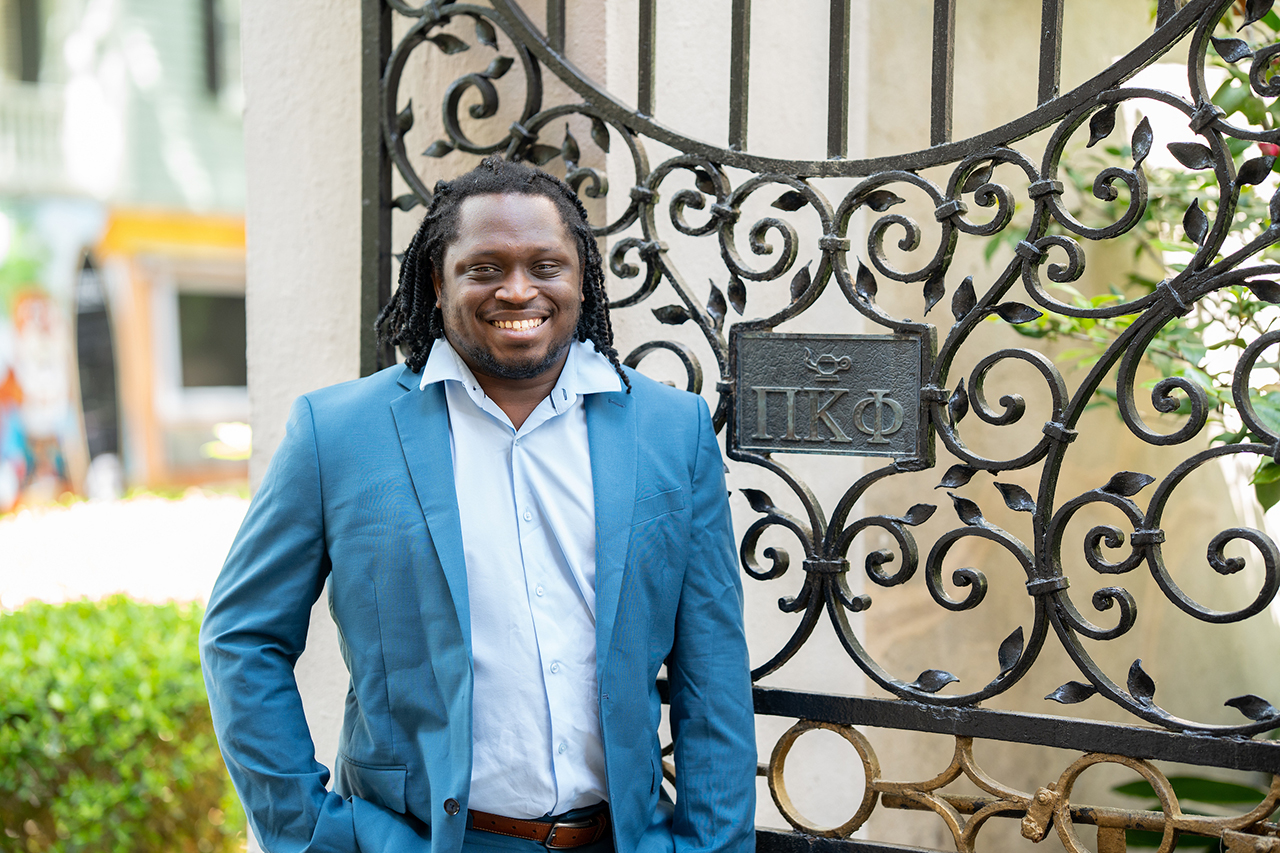College of Charleston Professor's New Book Examines Brutal Past
Shannon Eaves spent more than a decade researching accounts of rape and sexual violence against enslaved women.

Shannon Eaves didn’t opt for easy material. The associate professor of history has spent more than a decade researching accounts of rape and sexual violence against enslaved women.
Women like her great, great, great grandmother, who gave birth to Eaves’ great, great grandfather after being impregnated by her former owner. Women like Virginia Boyd, enslaved by a Texas man whose second child she was expecting when he put her up for sale. Despite her impassioned letter begging him not to break up her family, with bold, thinly veiled threats of exposing his extramarital exploits if he did, he sold her anyway.
Eaves explores these heart-wrenching tales, pointing a lens on how men in the antebellum South used sexual power and violence to subjugate both enslaved women and men, and to explore how a culture of violence was cultivated, nurtured and transmitted generationally.
“A culture, by general definition, shares a set of expectations. People have an understanding of how they are expected to behave, but these prescriptions are not innate,” she explains. “Slave owners were taught to be violent in this way. The result was a cultural landscape that both enslaved people and their enslavers had to learn to navigate.”

This research, as one might expect, has been emotionally taxing.
“I had to find ways to decompress and step away, to borrow some of the strength that I know these enslaved women had to have,” says Eaves, a Columbia, South Carolina, native who earned her undergraduate and graduate degrees at the University of North Carolina Chapel Hill, which published her book, Sexual Violence and American Slavery: The Making of a Rape Culture in the Antebellum South, in April 2024.
A journalism major, Eaves’ trajectory changed after taking her first African American studies class.
“My eyes opened to the many holes in my own education,” she recalls. “I had one professor in particular who made me think, feel and understand in new ways. I knew I wanted to do what he did.”
Today, she hopes to similarly inspire and enlighten CofC students, incorporating what she’s learned about sexual violence “as the physical embodiment of this system of exploitation,” in her classes and in her involvement in the Center for the Study of Slavery in Charleston.
“We consider how rape and sexual violence is used to exert power and control over Black communities in the post-Civil War era, through Reconstruction and beyond,” she says. “What may have started during slavery continues to be a tool.”
That tool cuts both ways, Eaves acknowledges, making the intersections of race, power, violence, class and gender inherently complex and interesting. Humans are entangled with each other, she points out.
“Systems of oppression also ensnare the oppressor. Sadly, there’s no happy ending, no moment of redemption, but that’s the human condition. History is not comfortable,” she adds. “But nor is the present often comfortable, so why should history be?”
Comfortable or not, Eaves considers it an exciting time to be at the College, engaging with tough questions about the legacies of slavery and how these legacies continue to impact on our society today.
“There’s a lot of synergy right now between International African American Museum, the Center for the Study of Slavery, the Avery and the faculty here across departments,” she says. “We will continue to do the hard work.”



